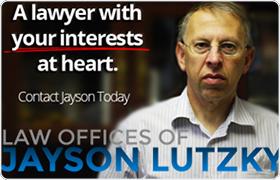Bronx Bankruptcy & Debt Lawyer, New York, page 2
Sponsored Law Firm
-
 x
x

Click For More Info:
-
Jayson Lutzky PC
1740 Hone Avenue Bronx, NY 10461» view mapBankruptcy & Debt The Choice For Law In The Bronx
Jayson Lutzky has 30 years of proven legal experience, both as a trial litigator and as a tough negotiator. Jayson has represented thousands of satisfied clients.
800-781-4910
Daniel Schlanger
✓ VERIFIEDBankruptcy & Debt, Collection, Credit & Debt, Employee Rights
Daniel Schlanger is a partner at Kakalec & Schlanger, LLP, where he heads the firm's consumer practice. His practice focuses on representing victims o... (more)
FREE CONSULTATION
CONTACTDavid Schachter
Business Organization, Collection, Banking & Finance, Bad Faith Insurance
Status: In Good Standing
FREE CONSULTATION
CONTACTMichael S. Hiller
Arbitration, Corporate, Business Organization, Bankruptcy Litigation
Status: In Good Standing
FREE CONSULTATION
CONTACTJoshua G. Losardo
Condominiums, Administrative Law, Credit & Debt, Bankruptcy
Status: In Good Standing
FREE CONSULTATION
CONTACTHeather Lynn Gregg
Bankruptcy, Commercial Real Estate, Condominiums, Contract
Status: In Good Standing
FREE CONSULTATION
CONTACTFREE CONSULTATION
CONTACT Jayson Lutzky Bronx, NY
Jayson Lutzky Bronx, NY Practice AreasExpertise
Practice AreasExpertise
